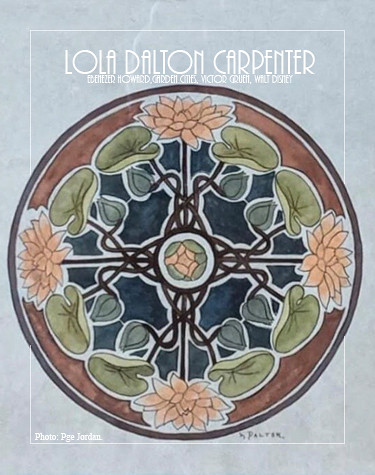
Volume XVIII, Issue XI: Mother's Day Special Issue
Lola Dalton Carpenter
My Grandmother, Lola Dalton Carpenter, studied at the Maryland Institute from 1910 to 1914. It was a great time to be an artist in many ways, as the art of the period was informed by the study of Classicism but branched into such joyful styles as Art Deco and Art Nouveau in reaction to the harsh realities of the Industrial Revolution and the great wars. She pursued a career as a fashion designer and no doubt inspired the rest of is in the family who harbored creative spirits. Here is presented a sampler of her work, compiled by myself, Page Jordan and Kent Jordan Child.

Still Life with Fish, Oil on Canvas by Lola Dalton Carpenter.
Photo by Page Jordan.
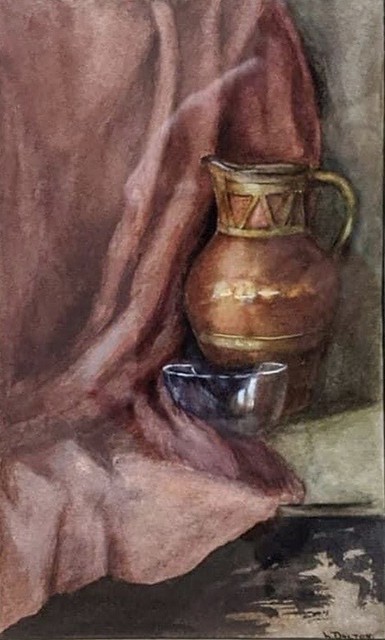
Watercolor Still Life by Lola Dalton Carpenter (1910-1914).
Photo by Kent Jordan Child.

Watercolor Still Life by Lola Dalton Carpenter (1910-1914).
Photo by Page Jordan.
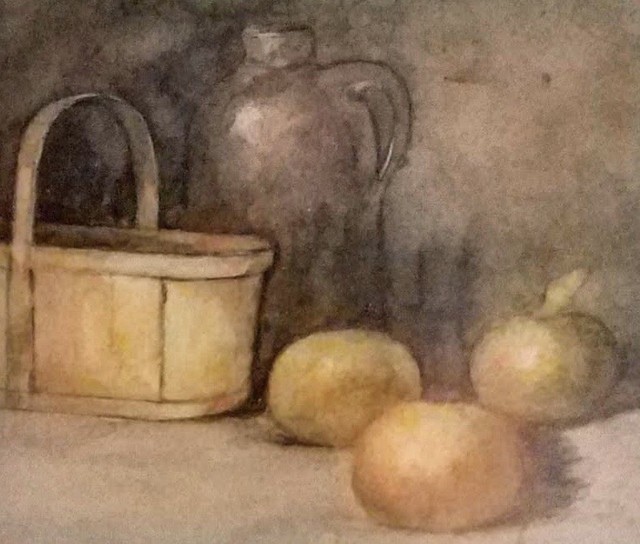
Watercolor Still Life by Lola Dalton Carpenter (1910-1914).
Photo by Page Jordan.

Mums, Oil on Canvas by Lola Dalton Carpenter (detail).
Photo by Bob Kirchman.
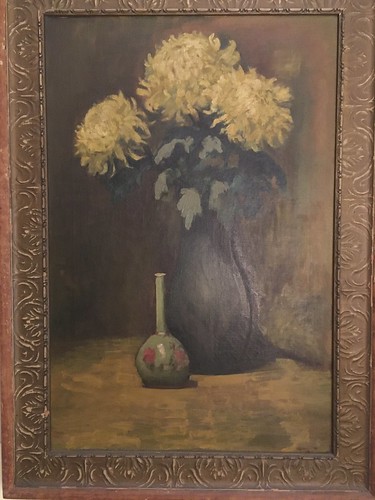
Mums, Oil on Canvas by Lola Dalton Carpenter.
Photo by Bob Kirchman.

The Baltimore Flower Market was begun in 1911 to encourage the planting of home gardens. Lola Dalton Carpenter likely painted this small oil painting en plein air at the first one. Photo by Ann Dubel.
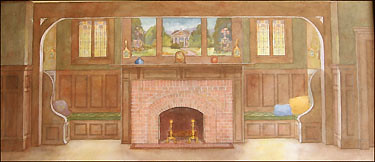
My Grandmother, Lola Dalton Carpenter, designed this ingelnook in 1914. Of course, it was exactly the look I wanted for Kris' house on Big Diomede. Design for an Inglenook, Watercolor Rendering by Lola Dalton Carpenter (1914). Photo by Bob Kirchman.
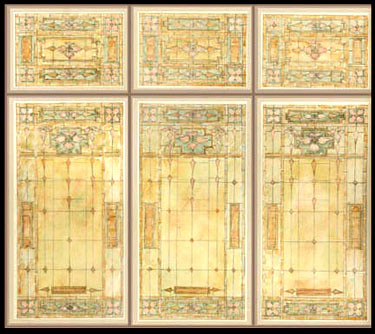
My Grandmother, Lola Dalton Carpenter, designed this window for a stairwell in 1914. I carried it into the Twenty-first Century as a window at the College on Big Diomede. Photo by Bob Kirchman.

Watercolor "Egyptian Ornament" by Lola Dalton Carpenter (1910-1914).
Photo by Page Jordan.

Watercolor "Grecian Ornament" by Lola Dalton Carpenter (1910-1914).
Photo by Page Jordan.


Watercolor Designs by Lola Dalton Carpenter (1910-1914).
Photos by Page Jordan.
See More Work [click to view]
The Garden Cities Movement
Ebenezer Howard, Victor Gruen and Walt Disney

In 1902, planner Ebenezer Howard published a book called Garden Cities of To-Morrow[1.] in which he presented an answer to the age old problem of community planning. The gathering of people for commerce and defense has always tended to crowd out much needed interaction with open space and nature. Howard set out to create cities and villages surrounded by farms and country. His garden city diagrams are presented in a circular form. When Victor Gruen set out to design Washington DC’s entry for a 1964 World’s Fair (they were scooped by New York’s Robert Moses), he designed a circular plan very similar to Howard’s. He insists he wasn’t influenced by Howard’s book, but the idea is the same. Walt Disney was inspired by Gruen’s ideas as he set out to build the EPCOT Experimental Prototype Community of Tomorrow. Today Leon Krier advocates a series of individual town centers rather than our huge centralized cities.


Ebenezer Howard's Garden City Diagrams.

Victor Gruen's Plan for a Garden City/World's Fair.

EPCOT, Plan Detail.
[Click to Read]
